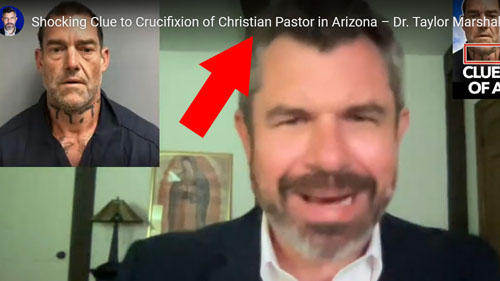| Recent Featured Videos and Articles | Eastern “Orthodoxy” Refuted | How To Avoid Sin | The Antichrist Identified! | What Fake Christians Get Wrong About Ephesians | Why So Many Can't Believe | “Magicians” Prove A Spiritual World Exists | Amazing Evidence For God | News Links |
| Vatican II “Catholic” Church Exposed | Steps To Convert | Outside The Church There Is No Salvation | E-Exchanges | The Holy Rosary | Padre Pio | Traditional Catholic Issues And Groups | Help Save Souls: Donate |  |









 " />
" /> " />
" /> " />
" /> " />
" /> " />
" />




Pope Benedict XV on the Redemption
No, the radical schismatics are wrong again. First, we must again make it clear that we are talking about Pope Benedict XV (1914-1922), not Antipope Benedict XVI.
In the quote above, Pope Benedict XV definitely committed an error of articulation about the Redemption; for not all receive the benefits or merits of Christ’s death (as Trent defines). However, Pope Benedict XV’s statement is not teaching universal salvation; it’s not remotely comparable to John Paul II’s clear utterances of universal salvation; and it’s definitely not proof of manifest heresy. It’s simply an error which, if expressed obstinately and in direct defiance of the precise words of Trent, would be heresy. However, as it stands and considered in context, it’s simply an error of articulation and a demonstration of a less-than-perfect familiarity with the precise language of the Council of Trent.
Let’s begin by refuting the idea that Pope Benedict XV is teaching universal salvation in the citation above. If we look at the whole encyclical, we see that Pope Benedict XV makes it quite clear that he’s not teaching universal salvation; for in the very same document (and thus in the same extended context) he repeats the Athanasian Creed: that no man is saved without the Catholic faith.
In the very same encyclical, he clearly teaches that no one is saved without the Catholic faith. In John Paul II’s many utterances of universal salvation (or anywhere else for that matter), he never once said the equivalent.
So what is Pope Benedict XV saying when he declares that “the whole of mankind was freed from the slavery of sin by the shedding of the blood of Jesus Christ as their ransom”? The answer is that he is speaking of the propitiatory nature of the Redemption. It’s a dogma that Jesus Christ’s Redemption destroyed or atoned or satisfied or made up for man’s sins – the sins of every man of all time.
Jesus destroyed every man’s sins in terms of a propitiation or atonement, so that every sin that would be forgiven was already forgiven by Jesus Christ and what He did on the Cross.
When a man believes, is baptized and justified, it’s the merit of Christ’s Passion that is imparted or applied to Him; for Christ made up for and destroyed the sins of every man on the Cross.
According to the radical schismatics, the Bible must have been teaching heresy when it taught:
Moreover, St. John the Baptist and St. John the Apostle must have been teaching heresy (according to the aforementioned schismatics) when they declared:
Christ takes away the sin of the world – the whole world. He freed mankind from sin, but not all receive the benefits of that Redemption. To put it another way, the fruits of the Redemption are not individually realized or actualized in all men. Only those who are incorporated into Christ receive the merits of the Passion.
Pope Benedict XV was simply stating the first part of the truth, that Christ’s Redemption applied to all and thus made up for (in the sense of propitiation) the sins of the whole world. His statement that no one is excluded from the benefits of the Redemption is simply an erroneous and imperfect attempt at articulating the truth that no one was excluded from what Christ did in terms of a propitiation or atonement. Jesus Christ’s Redemption applied to the whole world.
Throughout history, the terminology that some Catholics (not the Church itself) have used in expressing the two aspects of the Redemption – 1, that Christ forgave all men’s sins in terms of propitiation; and 2, not all receive the application of this forgiveness – has often been confusing and contradictory. For example, the regional council below (which was not infallible) equated being redeemed with being justified. Hence, it taught that not all men were redeemed.
This regional council correctly stated that there was no man for whom Christ did not suffer. However, since it defined Redemption as actually receiving justification, it stated that not all men were redeemed. The popes, on the other hand, didn’t define that being redeemed strictly meant receiving the merits of the Passion. To them, the Redemption referred to the propitiation (the atonement or appeasement) that Christ made on the Cross for the sins of every man. As a result, they taught that all men were redeemed because all men’s sins were included in the atonement of the Cross. At the same time, they made it clear that not all receive the individual application of those merits which were won by Christ unless they cooperate with grace. That distinction, that being redeemed doesn’t necessarily mean being justified, is why Pope Alexander VII refers to Christ as the Redeemer of the human race – i.e., of all men.
So, in summary, Pope Benedict XV’s words (in #1 of Ad Beatissimi Apostolorum) are simply an inaccurate articulation of the truth about the Redemption. They are not formally heretical. He was attempting to express the truth, but did it inaccurately. People don’t really expect the popes to have every line of Trent memorized, do they? As we’ve shown many times, popes can say things that are erroneous when discussing theological matters without it constituting heresy.
Some people argue that Pope Benedict XV’s words are equivalent to the following heresy of Antipope John Paul II. They are quite wrong. Let’s take a look.
This statement, unlike Pope Benedict XV’s erroneous statement on the universality of the Redemption, is definitely a heretical utterance of universal salvation. First, John Paul II specifically says that Christ’s Blood reaches and saves all. Salvation is almost always associated with actually being saved or justified, not the potential of being saved or justified. Furthermore, in the same context, John Paul II speaks of the New Covenant. In this very context, he declares that all are part of this covenant. He’s referring to the new (and everlasting) covenant, which Jesus mentioned when instituting the Eucharist in His blood (Mt. 26:28). This covenant is the Church; it represents actual union with Christ. This covenant does not embrace all, as dogmatic definitions on the very words of Christ’s blood (and the covenant it signifies) confirm.
In addition, John Paul II consistently taught that all men are saved. There are many examples of that in this file: The Heresies of John Paul II – a comprehensive presentation. Two such examples are given below. So his statement above, that the Blood of Christ saves all, etc., is perfectly in line with his other teaching. It doesn’t stand out in contrast – as is the case with Pope Benedict XV’s words – with some statement (in the very same document) that no man is saved without the Catholic faith.
John Paul II says that all men participate in “the divine life.” The “divine life” refers to the state of grace. That means that all men are justified. In the second quote, John Paul II says that Christ is united to every man “forever.” That clearly indicates that all are saved.
So, in wrongly concluding that Pope Benedict XV was teaching universal salvation and heresy by his imperfect articulation of the universality of the Redemption – and that he was therefore an antipope – the radical schismatics have come up with another schismatic error which further confirms that they are truly outside the Church.
Sign up for our free e-mail list to see future vaticancatholic.com videos and articles.
Recent Content
^